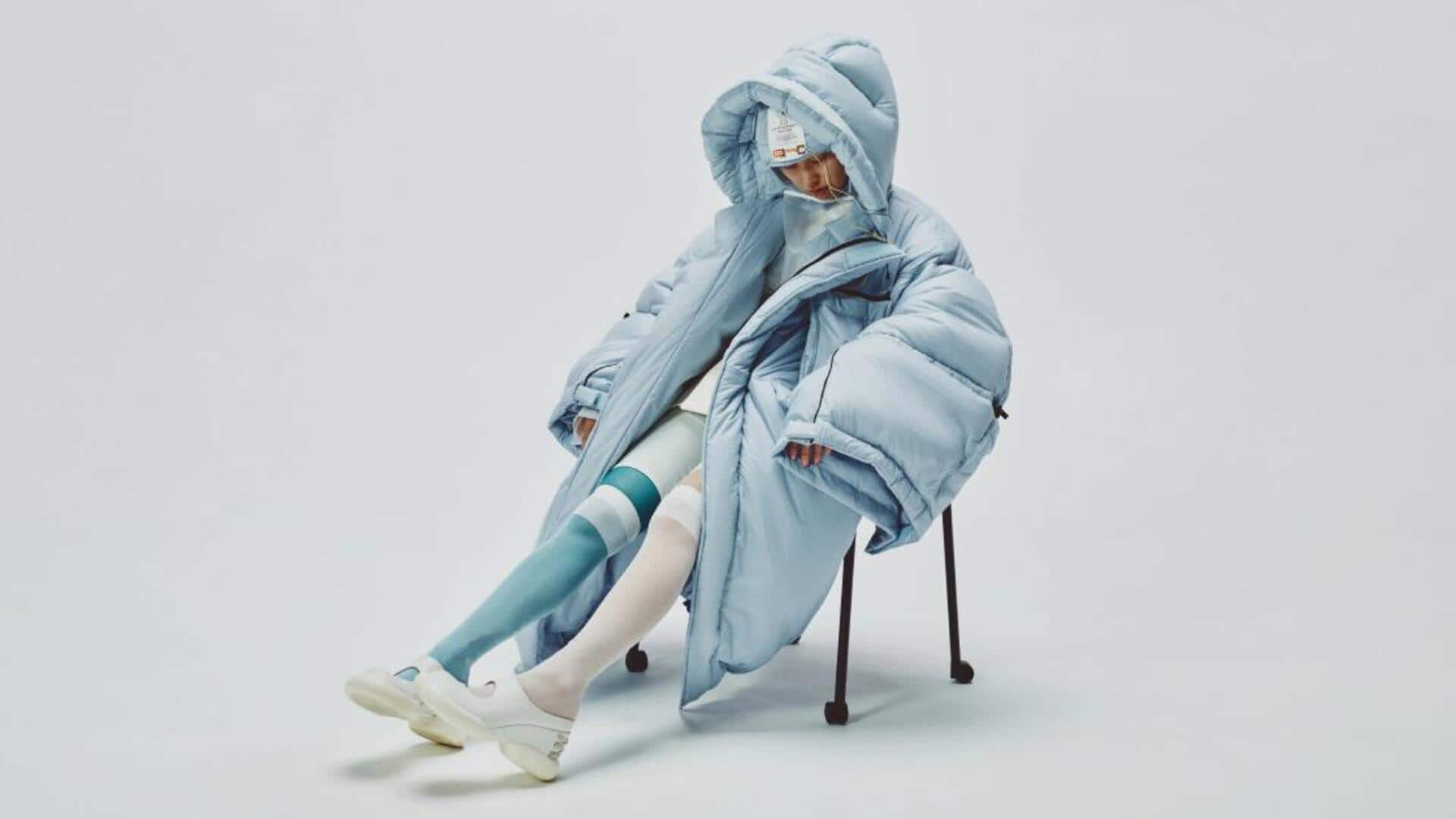
This smart jacket can fix your insomnia!
What's the story
Japanese design firm Konel has unveiled a revolutionary concept: a "smart" puffer jacket that uses light and sound to induce sleep. The innovative garment, called the ZZZN Sleep Apparel System, is specifically designed to optimize power naps by using personalized sound and lighting. The data for this is collected from a biometric ring worn by the user.
Design inspiration
A fusion of clothing and bedding
The ZZZN jacket is inspired by the "yogi," a quilted kimono worn for sleeping during the Edo period (1615-1868). Konel's Creative Art Director, Dai Miyata, explained that this garment is more like a fusion of clothing and bedding. The jacket can be worn as an oversized daily wear but also has a "sleep mode" activated by pulling up its hood.
Tech integration
How the jacket works
The ZZZN jacket comes with a very deep hood for privacy and an in-built system that converts the wearer's biometric data into light and sound. Red light is utilized to induce sleep, while blue light suppresses the melatonin to wake the body up. The light pulses at rates mimicking slow breathing patterns, thus promoting deeper sleep, and are accompanied by "neuromusic" with frequencies that directly influence brain waves for better sleep quality.
Cultural shift
Prototype on display at Osaka Expo 2025
Miyata hopes that the ZZZN jacket will spark curiosity about sleep and lead to discussions on improving rest practices. He said, "It's such a familiar part of life, yet there's still so much we don't know about it." The jacket is currently a "conceptual prototype" but will be displayed at Expo 2025 Osaka from June 24 to July 7 for visitors to experience its features firsthand.
Future
Could this be the future of sleep tech?
The development of the ZZZN jacket began last year with funding from Japan's Ministry of Economy, Trade and Industry. The project was part of an initiative to turn personal healthcare data into usable services and products. Although it remains to be seen if this conceptual sleep technology will be commercially available, Miyata believes that the "sleep system" might be adopted by regular apparel manufacturers for integration into existing clothing products.